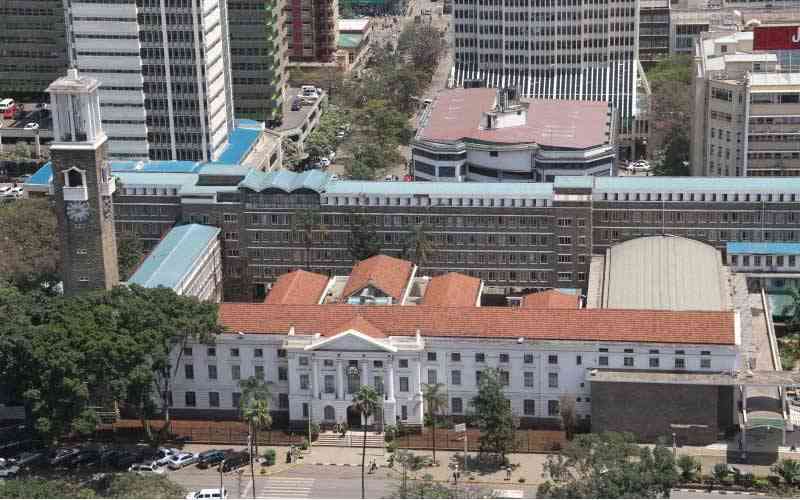The oil sector is yet again the subject of billions of shillings in lost revenues. At the heart of a cash-rich industry is a group of hard-wired cartels costing the East African economy a combined Sh16 billion in uncollected taxes annually.
Dodgy dealers are known to have perfected the art of evading taxes including diverting products intended for export to other East African markets that might not have adequate rules on pre-shipment inspection and minimum quality requirements.
Uncanny dealers
But the problem in the fuel sector is more complex than just tax evasion. The recent past has witnessed growing complaints of adulterated fuel in the market. As a matter of fact, the Kenya Bureau of Standards a fortnight ago warned of contaminated fuel and illegal gas cylinders doing rounds in the market.
Security agencies have linked the recent spate of theft of gas cylinders to the flourishing criminal enterprise in the oiled energy sector.
The black market is said to account for as much as 30 per cent of Liquefied Petroleum Gas (LPG) and other fossil fuels.
On a regional scale, it is estimated that up to 50 per cent of the lubricants in fuel stations have been sneaked into the market without paying duty. But even more chilling is the fact that some dealers could be using recycled lubricants to produce what they are selling as new.
To a large extent, this business malfeasance is fuelled by a failure on the part of pre-shipment inspectors appointed by regional governments to carry out a thorough verification of all petroleum products. This lapse provides easy passage for cartels to dump sub-standard and recycled lubricants into the market.
Toxic substance
But more critically, the oil sector suffers inadequate regional regulations with each country instituting individual policies.
Uncanny oil dealers, therefore, have bounteous time and space to run roughshod — easily selling petroleum products rejected in one country across borders.
This state of affairs exposes consumers to dangerous, even toxic substances.
Many times, consumers have had to pay heavy costs due to exposure of their machines to low quality and corrosive fuels — which also shortens the lifespan of equipment.
Many have in fact reported abnormal fuel consumption singularly occasioned by sub-standard lubricants and fuels.
On its own, however, tax evasion is hardly the biggest threat to the expanded economy. What should worry the regional governments is the fact that the activities of the oil thieves are now threatening the stability of the entire oil sector.
Stay informed. Subscribe to our newsletter
Legitimate oil dealers face the imminent threat of going under as the crooks easily undercut them to clear stocks of their contaminated products. This is a dangerous game of poker to regional economies whose singular survival hinges on imported oil.
It is sabotage — an economic crime that should be dealt with urgently.
 The Standard Group Plc is a
multi-media organization with investments in media platforms spanning newspaper
print operations, television, radio broadcasting, digital and online services. The
Standard Group is recognized as a leading multi-media house in Kenya with a key
influence in matters of national and international interest.
The Standard Group Plc is a
multi-media organization with investments in media platforms spanning newspaper
print operations, television, radio broadcasting, digital and online services. The
Standard Group is recognized as a leading multi-media house in Kenya with a key
influence in matters of national and international interest.
 The Standard Group Plc is a
multi-media organization with investments in media platforms spanning newspaper
print operations, television, radio broadcasting, digital and online services. The
Standard Group is recognized as a leading multi-media house in Kenya with a key
influence in matters of national and international interest.
The Standard Group Plc is a
multi-media organization with investments in media platforms spanning newspaper
print operations, television, radio broadcasting, digital and online services. The
Standard Group is recognized as a leading multi-media house in Kenya with a key
influence in matters of national and international interest.









